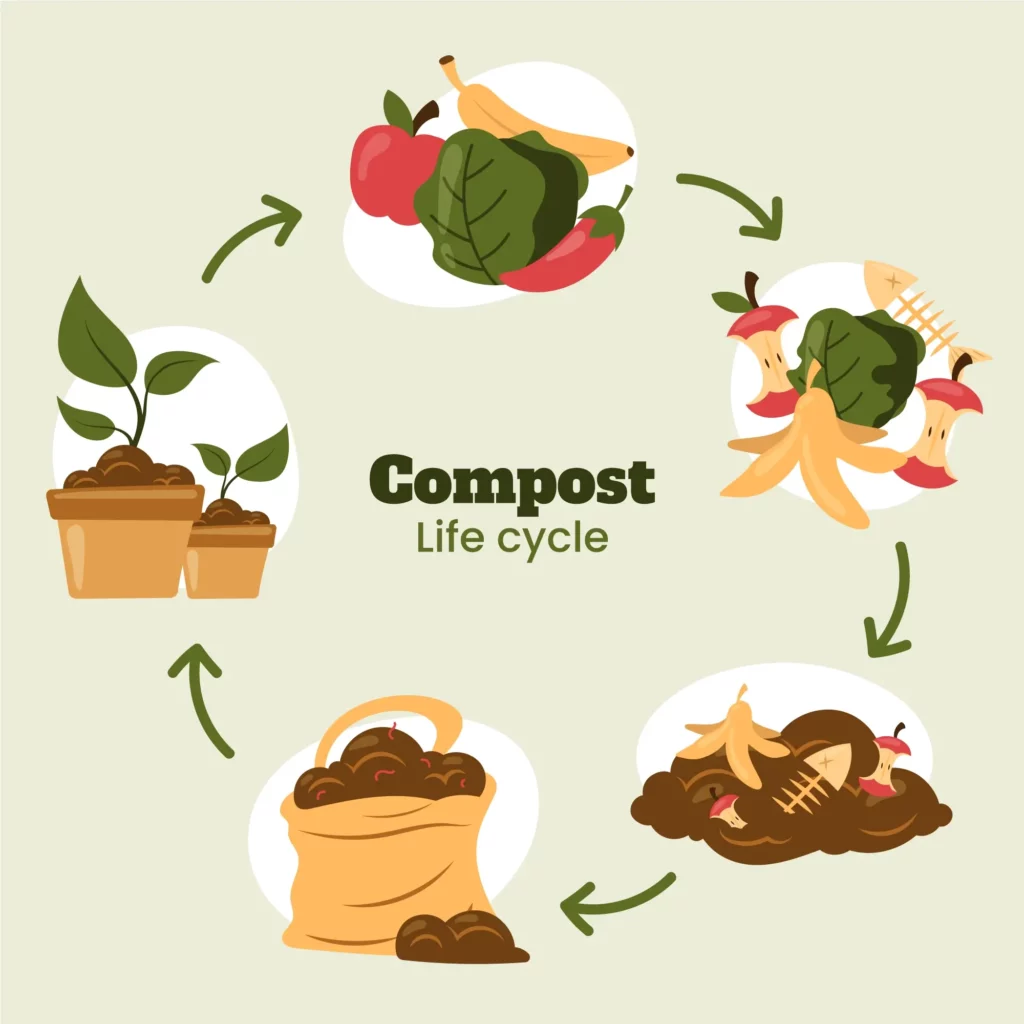Introduction
As the globe grapples with environmental concerns such as climate change, pollution, and the depletion of natural resources, the need for sustainable waste management practices becomes more obvious. Organic garbage, which includes kitchen leftovers, yard trash, agricultural residues, and other materials, makes for a sizable component of the worldwide waste stream. Traditional garbage disposal techniques, such as landfilling and incineration, offer serious environmental and health risks.
Vermiculture, an eco-friendly and effective technology that uses earthworms to transform organic waste into nutrient-rich vermicompost, offers a glimpse of hope. This blog investigates the benefits of vermiculture and its role in organic waste management, with the goal of building a more sustainable and environmentally friendly world.
Vermiculture: An Introduction
Vermiculture, also known as worm composting or vermicomposting, is the process of decomposing organic matter and transforming it into nutrient-rich compost using various kinds of earthworms. The approach has been used for millennia and has recently acquired popularity owing to its eco-friendliness and efficacy. Earthworms of two sorts are used in vermiculture: epigeic worms and anecic worms. Eisenia fetida (often known as red wigglers) is an epigeic worm that lives on the surface and feeds on organic waste. Anecic worms, such as Lumbricus terrestris (often referred to as nightcrawlers), like to dig deep into the earth and ingest soil and plant detritus.
The Vermicomposting Method
The process of vermiculture begins with the creation of a suitable habitat for earthworms. Layers of organic waste items, such as vegetable and fruit scraps, coffee grounds, tea bags, eggshells, and shredded paper or cardboard, are placed in a worm bin or composting container. These materials have the required carbon-to-nitrogen ratio for efficient breakdown. The earthworms are then placed in the bin and begin to consume the organic debris.
Earthworms emit castings during digestion, which are rich in beneficial microbes and nutrients such as nitrogen, phosphate, and potassium. These worm castings, also known as vermicompost, are a great soil conditioner and fertilizer. Vermicompost improves soil structure, increases water retention, encourages plant development, and suppresses plant diseases and pests.
Vermiculture and Organic Waste Management Benefits
Waste Reduction:
Vermiculture is a long-term option for decreasing organic waste in landfills. By diverting organic waste from landfills, greenhouse gas emissions such as methane are reduced, which contributes greatly to climate change mitigation.
Nutrient-Rich Compost:
Vermicompost is a powerful organic fertilizer that delivers important nutrients to plants in a slow-release form, promoting long-term development and stronger crops. Additionally, vermicompost enhances the soil, making it more fertile and beneficial to plant development.
Soil Structure, Aeration, and Drainage are Improved:
The application of vermicompost improves soil structure, aeration, and drainage. It improves the soil’s ability to hold moisture, lowering water usage and runoff and so preventing soil erosion.
Low-Cost and Scalable:
Vermiculture is a low-cost waste management solution that can be easily deployed in a variety of settings, from individual houses to large-scale agricultural enterprises. It has low initial investment and ongoing maintenance expenses.
Soil Biodiversity:
Vermicompost is all-natural and devoid of toxic chemicals, unlike synthetic fertilizers and pesticides. This contributes to the preservation of soil biodiversity and the reduction of environmental contamination.
Community Engagement:
Vermiculture may be integrated into community-based programs including schools, housing developments, and neighborhood gardens. It encourages environmental responsibility and community involvement.
Renewable Resource:
Earthworms employed in vermiculture multiply quickly, making them a renewable resource. They are easily grown and shared, guaranteeing a steady supply for composting requirements.
Organic agricultural Promotion:
Vermicompost is completely compatible with organic agricultural principles. Its use removes the need for synthetic fertilizers and chemical inputs, supporting environmentally friendly farming practices.
Challenges and Strategies for Mitigation
While vermiculture has many advantages, it is not without its drawbacks:
Temperature and Moisture Control: It is critical for efficient vermiculture to maintain proper temperature and moisture levels. Extreme temperatures and high humidity can have a deleterious influence on worm populations. Adequate monitoring and changes are required to keep the environment at its best.
Room Restrictions: Worm beds may demand a significant amount of room for large-scale waste disposal. Innovative design concepts can assist in optimizing space utilization.
Knowledge and Awareness: It is critical for widespread adoption to educate individuals and communities about the vermiculture process and its advantages. Awareness may be raised through workshops, lectures, and information campaigns.
Regulatory Obstacles: Some areas may have legislation or zoning limitations that make vermiculture activities difficult. Engaging with local governments and officials can assist overcome these obstacles.
Pest Infestations: Vermiculture systems can occasionally attract undesired pests such as fruit flies or mites. Regular maintenance and adequate waste stacking might help to alleviate these problems.
Conclusion
Vermiculture and organic waste management provide a long-term solution to trash disposal and soil deterioration. We can enrich the soil, reduce greenhouse gas emissions, and promote eco-friendly farming practices by leveraging the natural ability of earthworms to convert organic waste into beneficial vermicompost. Individual and community adoption of vermiculture may have a large positive influence on the environment, producing a greener and more sustainable world for future generations. Let us take the initiative and use this easy yet efficient waste management strategy to help develop a healthy world.

